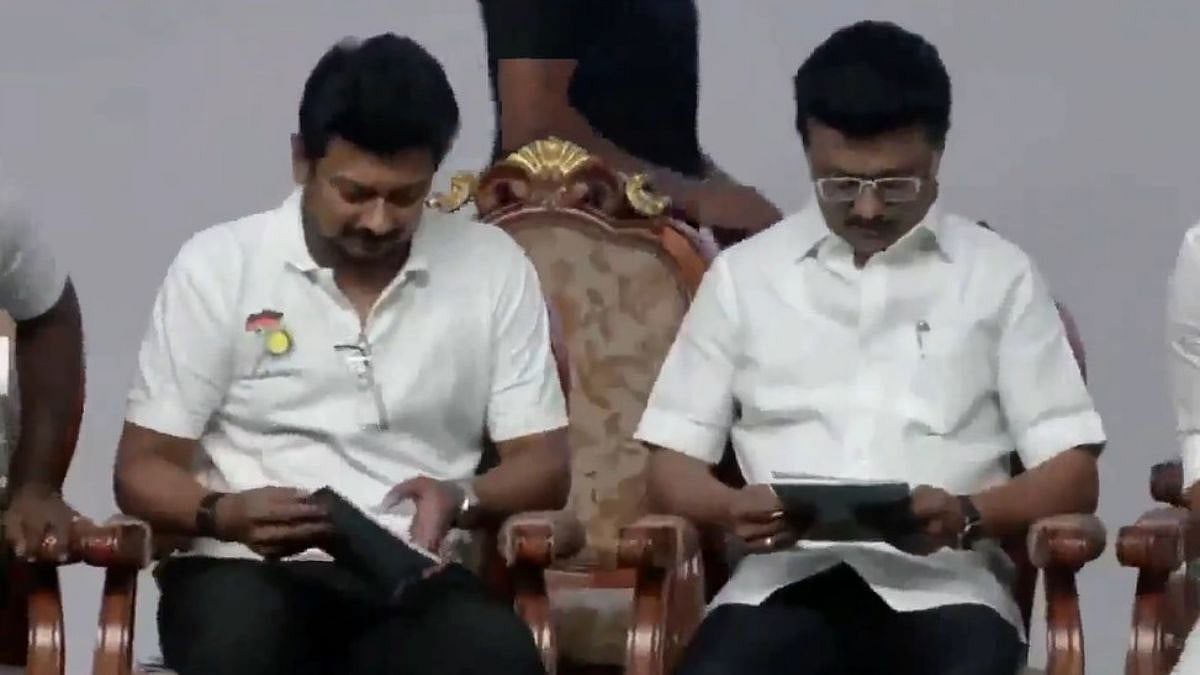Tamil Nadu Government Launches State Education Policy As NEP Alternative With Focus On Tamil-English Medium
Tamil Nadu Chief Minister MK Stalin launched the State Education Policy (SEP) as an alternative to the National Education Policy (NEP), emphasizing Tamil-English medium and rejecting the NEP’s three-language formula. The SEP opposes early public exams and promotes admissions based on Class 11 and 12 marks. It also calls for greater state autonomy and increased investment in public education.

Tamil Nadu Government Launches State Education Policy | Image: ANI
Tamil Nadu Chief Minister MK Stalin launched the State Education Policy (SEP) on Friday at the Anna Centenary Library Auditorium in Kotturpuram, Chennai. The newly introduced SEP has been framed as an alternative to the National Education Policy (NEP), reflecting the state’s distinct educational priorities and vision.
A 14-member committee, led by retired Justice D. Murugesan, was formed in 2022 to frame Tamil Nadu’s State Education Policy (SEP). After months of consultation and review, the committee submitted its recommendations to Chief Minister MK Stalin in July 2024. The final document has now been officially released.
"Through this education policy, we don't want students just to mug up, but think and get educated. Physical education will be taught along with studies. Importantly, I want to say firmly that we will follow two two-language policy and it is our firm policy," Stalin said, as reported by the news agency ANI.
The Chief Minister announced that the newly unveiled State Education Policy (SEP) will introduce smart classes across schools. He emphasized the government’s goal to increase higher education enrollment from the current 75% to a full 100% of school students.
The release of the State Education Policy (SEP) follows months of widespread opposition to the National Education Policy (NEP) introduced by the Central government.
According to media reports, the State Education Policy (SEP) reaffirms Tamil Nadu’s commitment to the two-language system, firmly opposing the three-language formula outlined in the National Education Policy (NEP). Additionally, the SEP proposes that undergraduate admissions for arts and science programs be based on the combined marks of Classes 11 and 12, rather than through a common entrance examination.
The SEP strongly opposes the NEP’s proposal to introduce public examinations in Classes 3, 5, and 8, labelling the move as regressive, anti–social justice, and likely to increase dropout rates while promoting the commercialisation of education.
In contrast, the SEP outlines a progressive vision with a strong emphasis on science, artificial intelligence, and English education. It also calls for significant investment in government-run educational institutions to ensure quality and accessibility. Notably, the policy recommends that education be shifted back to the State List from the Concurrent List, thereby advocating for greater state autonomy in shaping education policy.
The DMK-led Tamil Nadu government has consistently voiced strong opposition to the NEP, criticising it as an attack on social justice and a veiled attempt to impose Hindi on the state. Firm in its stance, Tamil Nadu has refused to adopt the NEP. In May, the state approached the Supreme Court, alleging that ₹2,200 crore in central funds were withheld due to its non-compliance.
RECENT STORIES
-
-
-
-
-